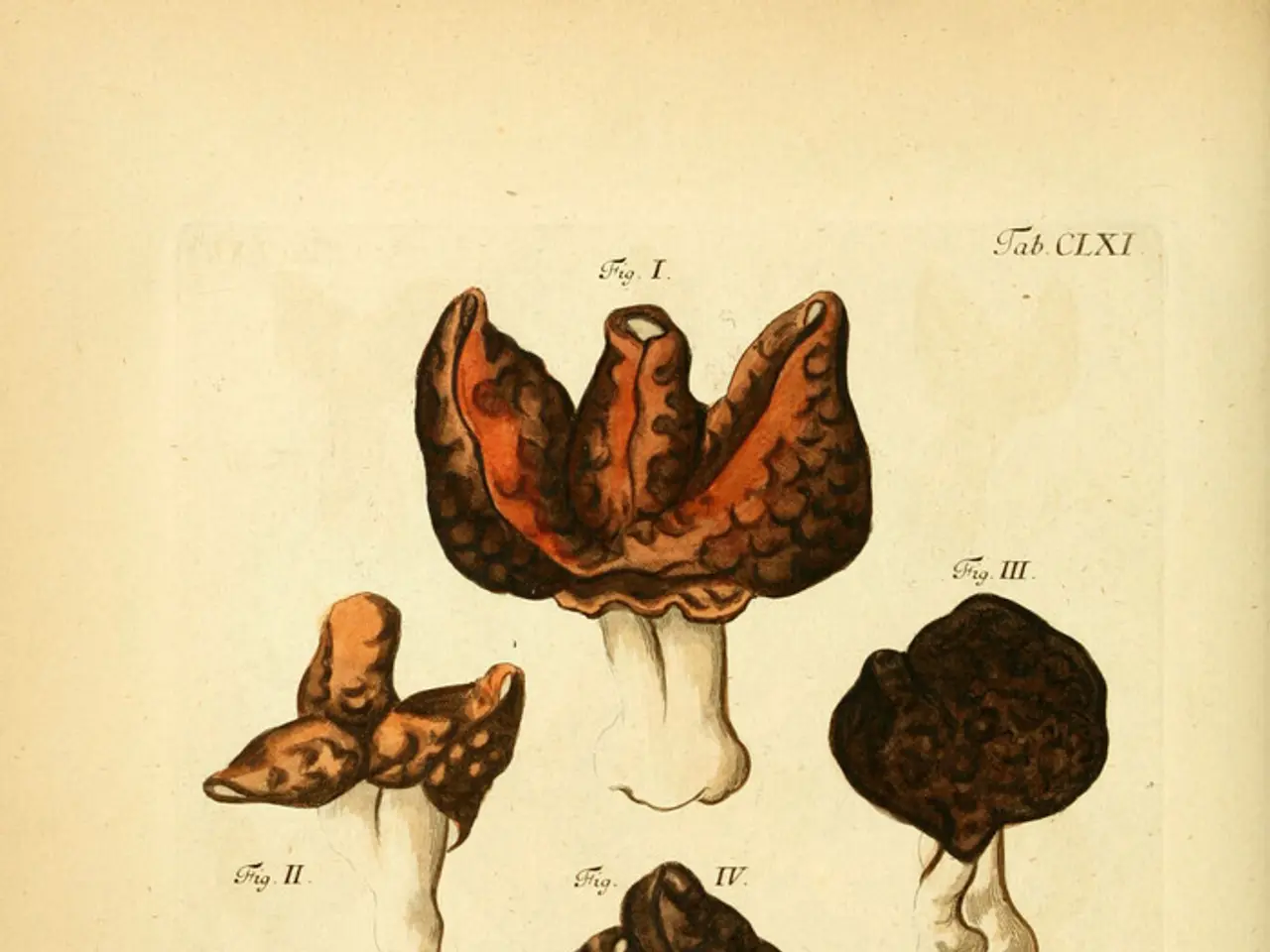Reishi Mushrooms: Advantages, Potential Drawbacks, and Recommended Intake
Reishi mushrooms, scientifically known as Ganoderma lucidum, have been a staple in traditional medicine for over an extended period, with claims of numerous health benefits. However, current scientific evidence supports several proven benefits for human health, while potential risks and side effects are less documented.
### Evidence-Based Benefits
One of the key benefits of Reishi mushrooms is their ability to modulate the immune system. The mushroom contains polysaccharides, such as beta-glucans, which have been shown to regulate and balance immune function by modulating cytokine activity. This helps prevent overactive immune responses and supports overall immune homeostasis, enhancing resistance to infections and inflammatory conditions.
Reishi is also known for its stress-relieving properties. Water-soluble extracts of Reishi have antidepressant-like effects in animal models, contributing to reduced anxiety and improved sleep quality. Its adaptogenic properties help lower cortisol levels, reducing stress and emotional eating that can negatively impact health.
The anti-inflammatory effects of Reishi are another area of interest. Compounds found in Reishi have been observed to inhibit histamine release and reduce inflammation in animal studies, such as allergic reactions and asthma symptoms. This anti-inflammatory action may benefit conditions involving chronic inflammation.
Reishi is also believed to promote longevity by activating cellular autophagy and stress resistance pathways in lab models. Its antioxidant and anti-tumor properties contribute to protecting cells from oxidative stress, which is linked to aging and disease.
In addition, Reishi may offer metabolic support and aid in weight management. The mushroom supports hormone balance involving hunger regulation and can reduce cravings by modulating ghrelin and leptin. When combined in formulations like mushroom coffee, it may enhance metabolism, promote fat burning, and reduce stress-related eating, supporting weight control efforts.
Preliminary research also suggests that Reishi may have potential benefits for diabetes management, as mushrooms in general, including Reishi, have low glycemic index and contain biologically active compounds with hypoglycemic effects.
### Potential Risks and Considerations
While Reishi is generally regarded as safe, more comprehensive human clinical data is needed, and caution is advised for specific patient groups or when combined with medications. Most of the robust evidence comes from animal studies or in vitro research, and human clinical trials are fewer and often involve extracts rather than whole mushrooms, so efficacy and safety could vary.
Individuals with immune disorders or allergies should approach the use of Reishi supplements cautiously and under medical advice. Since Reishi can modulate immune function, there is a potential for allergic reactions.
Due to its effects on the immune system and possible blood thinning properties, Reishi might interact with immunosuppressants, anticoagulants, or other medications. People taking these medications should consult their doctors before taking Reishi supplements.
Some people report mild gastrointestinal upset when first using Reishi supplements. It is essential to start with a low dosage and gradually increase it to minimise the risk of side effects.
### Summary
Reishi mushrooms are scientifically supported as an immune modulator, adaptogen, anti-inflammatory, and metabolic aid with promising benefits for stress relief, inflammation-related conditions, and longevity pathways. While generally regarded as safe, more comprehensive human clinical data is needed, and caution is advised for specific patient groups or when combined with medications. It is important to note that the Food and Drug Administration (FDA) do not monitor supplements and natural remedies, so it is crucial to purchase them from reputable sources. People who are scheduled for surgery, individuals with bleeding disorders, or those taking medications that may interact with Reishi should avoid taking these supplements. A doctor may be able to recommend alternative therapies and treatments that work better for people based on their medical history.
- The immune-modulating properties of Reishi mushrooms are due to their content of polysaccharides like beta-glucans, which regulate and balance immune function.
- Reishi is famed for its stress-reducing effects, as water-soluble extracts have been observed to provide antidepressant-like effects in animal models, potentially reducing anxiety and improving sleep quality.
- Reishi's anti-inflammatory properties are demonstrated through compounds found in the mushroom that inhibit histamine release and decrease inflammation in animals, benefits that may extend to conditions with chronic inflammation.
- Reishi is believed to promote longevity through activation of cellular autophagy and stress resistance pathways, as well as its antioxidant and anti-tumor properties that protect cells from oxidative stress.
- With regards to weight management, Reishi may offer assistance by supporting hormone balance, reducing hunger cravings, and enhancing metabolism, thus contributing to weight control efforts.
- Preliminary research suggests that Reishi may have potential benefits for diabetes management due to its low glycemic index and hypoglycemic effects.
- However, it is important to approach the use of Reishi supplements cautiously for individuals with immune disorders or allergies, and to do so under medical advice due to its potential for allergic reactions.
- Reishi's effects on the immune system may lead to interactions with immunosuppressants, anticoagulants, or other medications, making it prudent for people taking these drugs to consult their doctors before taking the supplements.
- Some individuals experience mild gastrointestinal upset when first using Reishi supplements, so it is essential to start with a low dosage and gradually increase it to minimize side effects.
- Reishi mushrooms provide benefits as an immune modulator, adaptogen, anti-inflammatory, and metabolic aid, exhibiting promise for stress relief, inflammation-related conditions, and longevity pathways.
- While the FDA does not monitor supplements and natural remedies, it is vital to purchase these products from reliable sources to ensure safety and quality.
- People scheduled for surgery, individuals with bleeding disorders, or those taking medications that may interact with Reishi should avoid taking these supplements. A doctor may recommend alternative therapies and treatments tailored to an individual's medical history.




